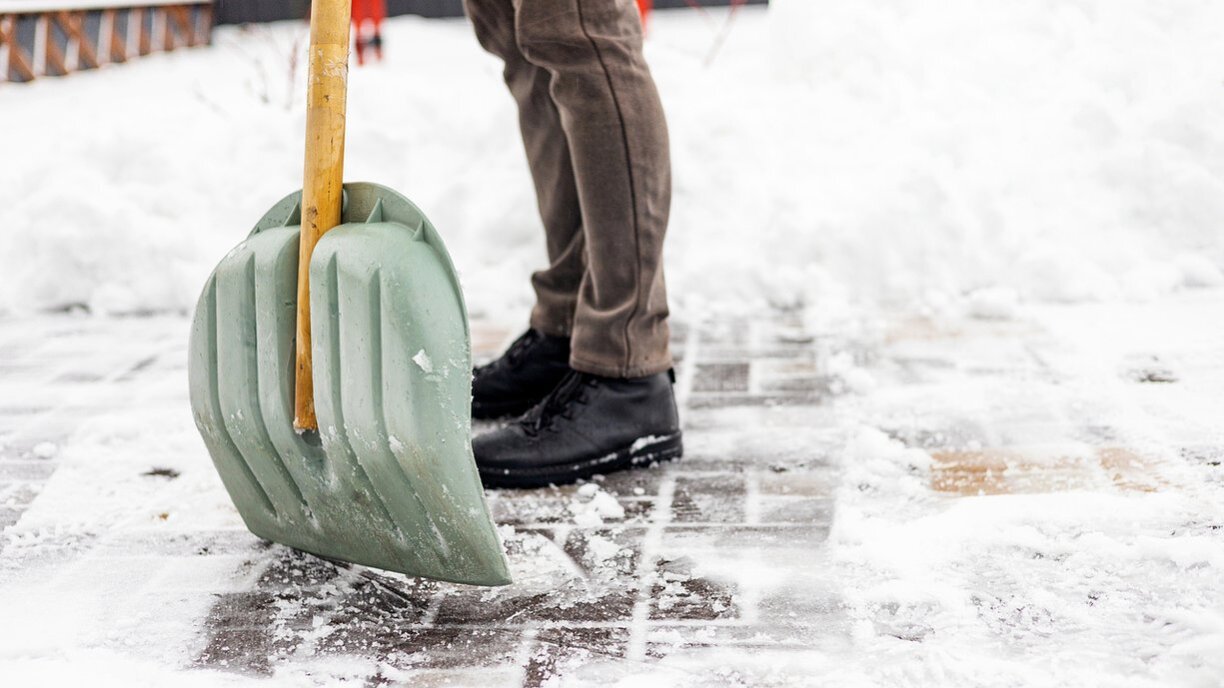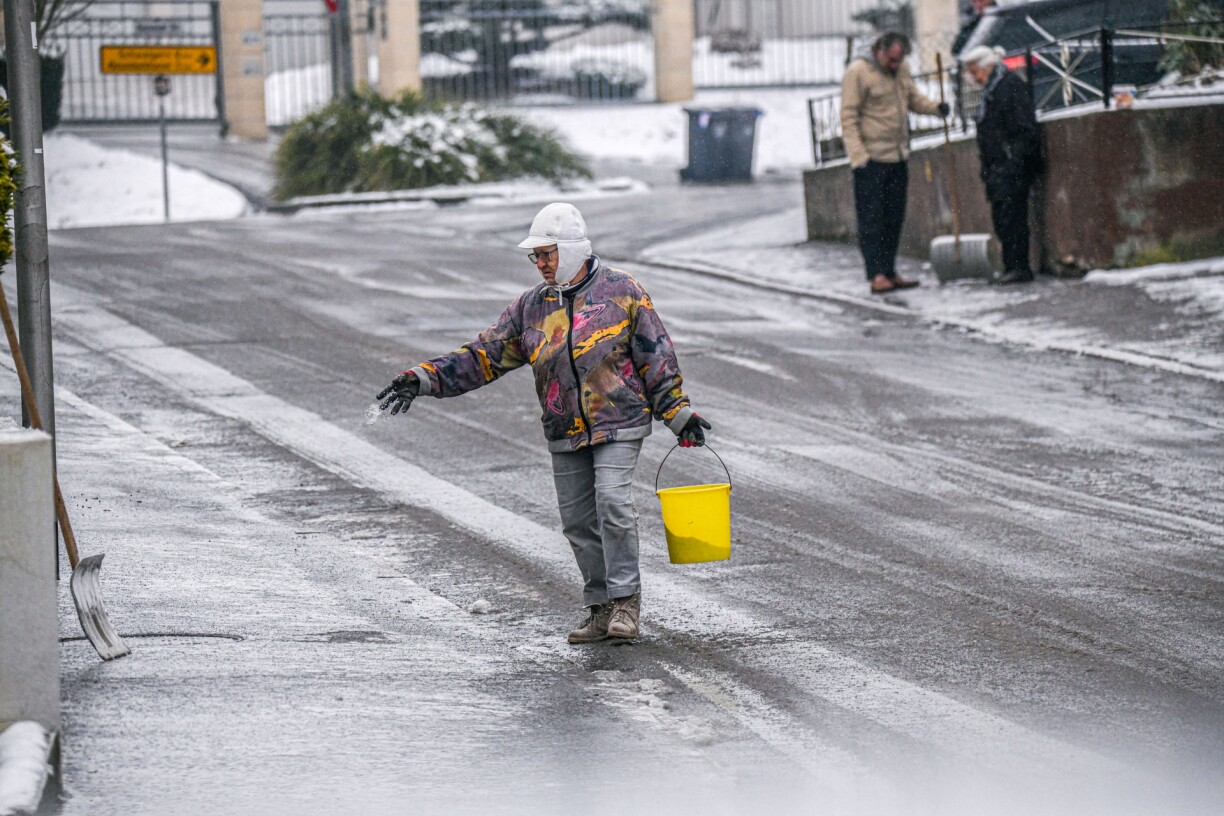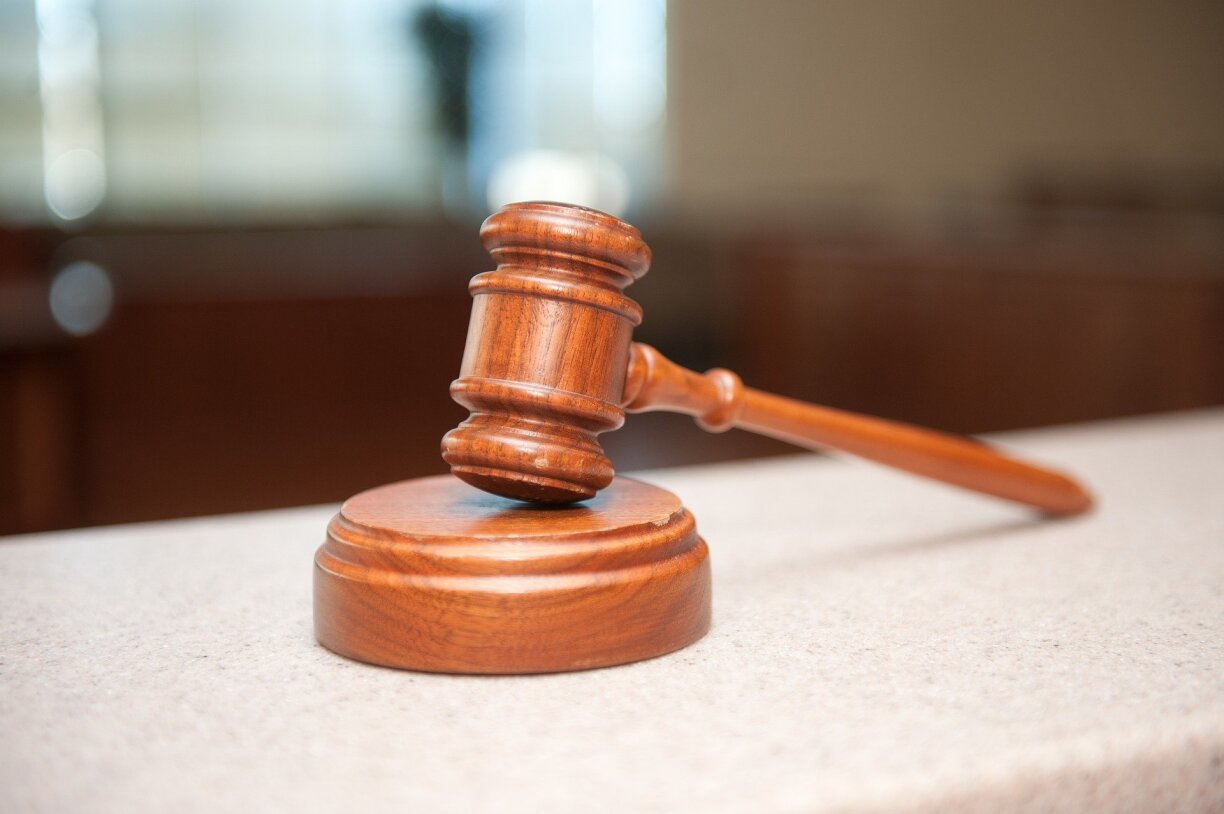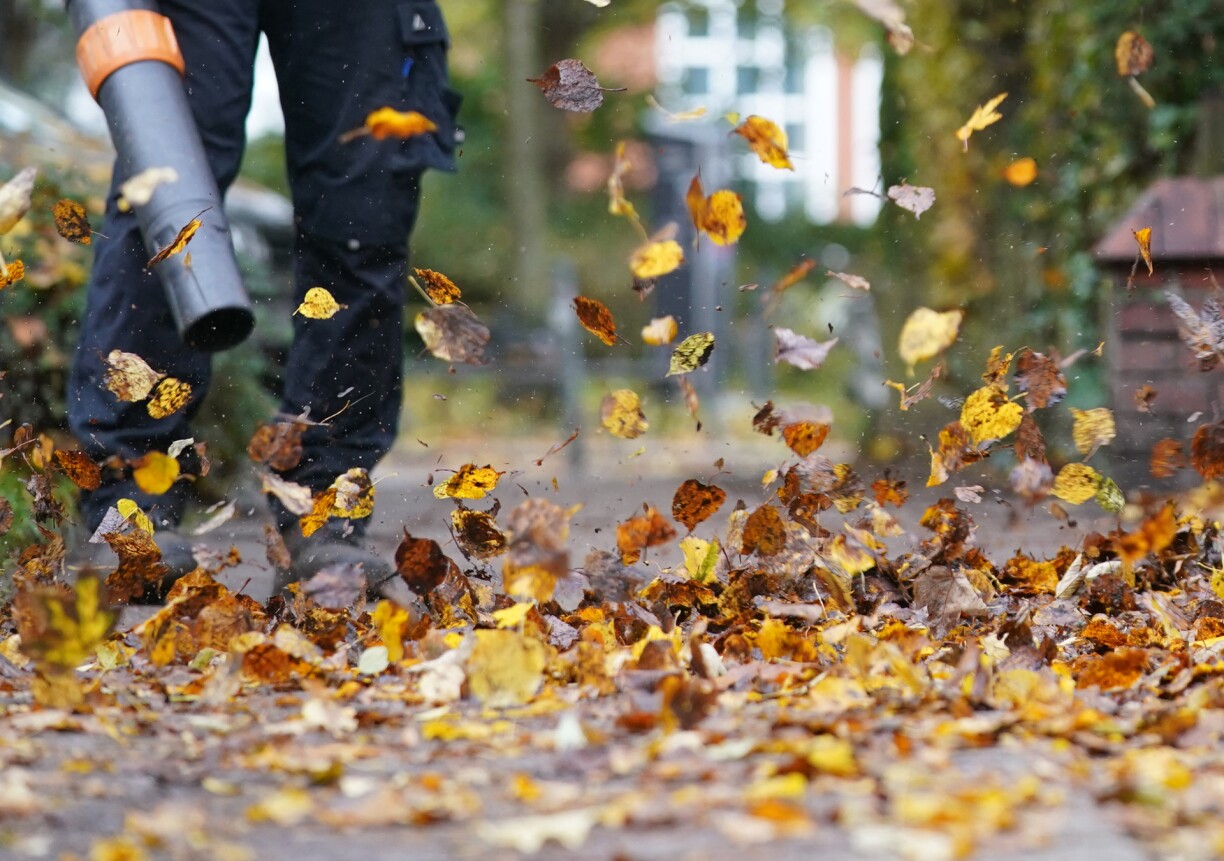
As temperatures drop below zero and the first snowflakes of the season fall in Luxembourg, questions arise about who is responsible for ensuring pavements remain safe. Is it up to residents to shovel snow or apply salt? What happens if a passer-by slips and falls? And what about other debris like dead leaves or weeds? Our colleagues from RTL Infos investigated to provide clarity.
The first snowflakes have fallen in Luxembourg. Not enough to start a snowball fight, of course, but in some places, particularly in the north of the country, it could be enough to make pavements slippery. This will no doubt lead to the annual ritual of some residents diligently shovelling snow and spreading salt, while others leave their doorsteps untouched.
However, Luxembourg law imposes a clear obligation: residents must keep the pavement in front of their homes safe and passable year-round, regardless of the season. Here’s a closer look at the rules.
Short answer: Yes. According to Foyer Assurances, Luxembourg law requires residents to ensure the pavements adjacent to their properties are free of snow and ice to ensure pedestrian safety. That said, liability in the event of a pedestrian falling is not always straightforward (more on that below).
Importantly, residents are not required to clear the entire width of the pavement. The rule is to maintain a one-metre-wide passage, Foyer explains: “There must always be a clear walkway one metre wide all the way along your property, whether it is bordered by a full pavement or by a simple marked strip.”
Salt is one of the most commonly used methods for clearing snow and ice. “Kitchen salt works, but you’d be better off using road salt, which is coarser and much cheaper,” explains Foyer Assurances. However, using water–whether hot or cold–is prohibited, as it can freeze and worsen the situation.
To reduce the need for salt, it is advisable to apply it preventively before frost or snowfall begins. Overuse of salt, however, should be avoided. Excessive application can harm vegetation, groundwater, concrete surfaces, pets’ paws, car bodies, and more. Foyer recommends using “7-20 g of salt per square metre as a preventative measure,” compared to “15-50 g to melt an existing ice patch.”
While there is no perfect alternative to salt, the non-profit organisation natur&ëmwelt provides tips to mitigate its environmental impact (available online in French and German).

The responsibility for clearing snow depends on the type of property:
For individuals unable to clear snow due to health issues or age, local municipalities or associations may offer assistance. “Some communes or associations organise a service to do it for you (for example, via a seasonal set package arrangement),” Foyer advises.

If a pedestrian is injured on a snow-covered pavement, who bears responsibility–the resident of the adjacent property or the local authority?
The answer is… complicated.
According to Foyer Assurances, the resident is typically held accountable. Failing to clear snow from the pavement outside your property can result in a municipal fine ranging from €25 to €250. Additionally, if an accident occurs due to uncleared snow or ice, the resident could face liability. “The victim would be entitled to lodge a formal complaint and claim compensation. Third-party liability insurance (which is required in any case) would not necessarily cover you if you had not taken the necessary measures to prevent your pavement from being slippery,” explains Foyer.
This interpretation aligns with comments from Guy Wester, a member of the Hesperange municipal executive board (“Schäfferot”) and the Association of Luxembourg Cities and Municipalities (Syvicol). Wester emphasised that Luxembourg’s Civil Code identifies pavement maintenance as a civic duty intended to ensure public safety. He noted that while some flexibility exists–for instance, if residents are absent during snowfall–failure to clear pavements without justification could still lead to liability.
However, this view is contested by lawyer Georges Krieger. He pointed out that decrees from 1789 and 1790, still applicable in Luxembourg, designate municipalities as custodians of pavements. Even if local police regulations require residents to maintain pavements, “this does not absolve municipalities of their responsibility” in the event of a fall or similar incident, Krieger told RTL.
Regardless of legal nuances, residents are encouraged to demonstrate good faith. If most of your neighbours have cleared their pavements, claiming the weather caught you off guard may not be credible. Nonetheless, Foyer stresses that the obligation to clear snow is about reasonable effort, not perfection. “The legal requirement to clear your pavement does not mean taking time off work, monitoring the weather round the clock or shovelling non-stop during constant winter blizzards,” they note. It is an obligation of means, not results.
Pedestrians also bear some responsibility for adapting to winter conditions. Wearing suitable footwear and walking cautiously are key precautions. If a pedestrian falls due to a lack of preparation, the resident may not automatically be at fault. In disputed cases, a judge will ultimately decide where responsibility lies.

Luxembourg City’s website specifies: “Residents must ensure that pavements and gutters in front of their buildings or land are kept clean.”
The rules for snow clearance therefore extend to other forms of debris as well. For example, “in autumn, leaving dead leaves on the pavement can pose a danger to pedestrians. Please collect dead leaves and dispose of them with your garden waste or regular household waste. Do not sweep them into gullies or sewer drains. You can also dispose of dead leaves for free at the Recycling Centre,” the capital recalls.
For specific guidance, residents should consult their municipality’s by-laws to understand the provisions in force. Beyond legal obligations, the principles of good neighbourliness also come into play. Pavements and public spaces are shared areas and keeping them clean is a collective responsibility. This includes tasks like removing moss and weeds that may grow in front of your property.
Read also:
-Parking rules in Luxembourg: Can I forbid my neighbour from parking in front of my house?
-Noise complaints: Noisy neighbours - what are your rights?